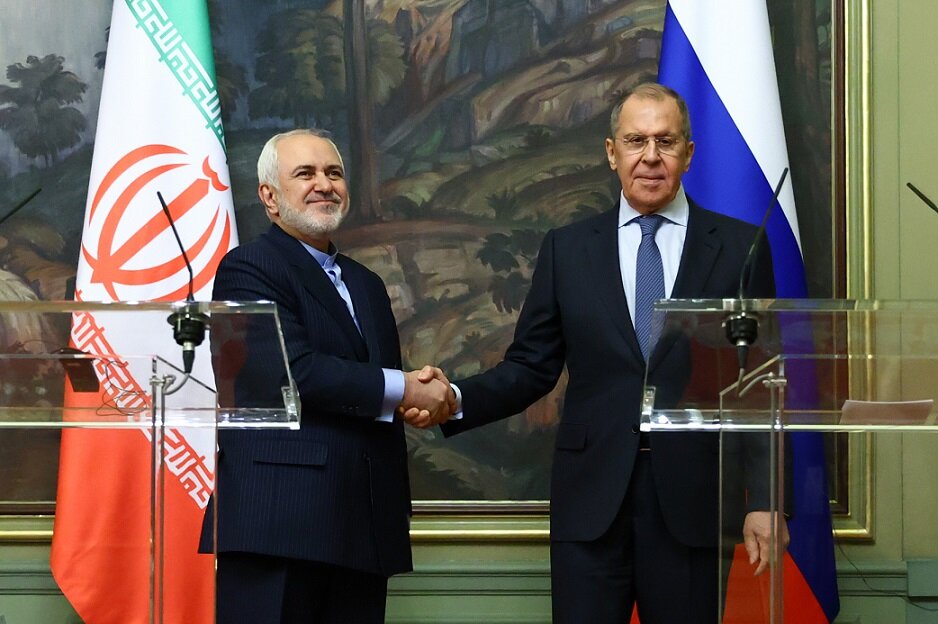Is Russia mediating between Iran and U.S. on JCPOA?

TEHRAN – As Iran and the United States moved to vociferously set their preconditions for any revival of the 2015 Iran nuclear deal, Russia quietly reached out to Tehran and Washington to address the “problem” of reviving the multilateral nuclear agreement.
The renewed Russian diplomatic efforts come against a backdrop of heightened tensions between Iran and the European parties to the nuclear deal – officially known as the Joint Comprehensive Plan of Action (JCPOA) –, who used to mediate between Tehran and Washington over the course of the Trump presidency.
Last week, the Russian efforts were on full display.
During his meeting with Iranian Foreign Minister Mohammad Javad Zarif on Tuesday, Russian Foreign Minister Sergey Lavrov directly addressed the issue of saving the JCPOA in his opening remarks, although the main subject of Zarif’s visit to Moscow was to discuss the situation in the disputed region of Nagorno-Karabakh after a Russian-brokered ceasefire deal put an end to a 44-day war there.
“We have a packed regional and international agenda. The task of saving the Joint Comprehensive Plan of Action (JCPOA) ranks among the most topical subjects. Russia and Iran are sincerely interested in seeing all JCPOA signatories resume the fulfillment of their obligations,” Lavrov said in the meeting with Zarif, who was on a working visit to Russia on the second leg of a regional tour that included Azerbaijan, Russia, Armenia, Georgia, Turkey, and the autonomous republic of Nakhchivan.
During the meeting, Lavrov and Zarif discussed “in detail” the latest developments surrounding the Iran nuclear deal, according to a Russian Foreign Ministry statement.
“We discussed in detail the situation around the Joint Comprehensive Plan of Action (JCPOA) on the Iranian nuclear program. Our positions are identical. We are interested in its complete preservation,” the statement said.
Lavrov expressed hope that “the current efforts will produce a result and lead to the preservation of the JCPOA and that the U.S. will resume full implementation of the said resolution.” He even said Russia believes that all signatories to the JCPOA will “resume the fulfillment of their commitments” under the 2015 nuclear deal.
Following the meeting, Lavrov and Zarif held a joint press conference during which the top Russian diplomat explained why he was so optimistic about the revival of the JCPOA.
“We are doing our best to ensure that, based on the statements by President Biden and his staff about their willingness to return to the JCPOA, all of us, including Iran, the EU and the People's Republic of China, find concrete ways to have all JCPOA participants fulfill their obligations in full. By doing so, we would return this greatest achievement in nonproliferation to the ‘treasure trove’ of international diplomacy and knock the trump cards out of the hands of those who wanted to push this situation to the limit and bring it to a ‘hot’ stage. Russia will do whatever it takes to prevent such a scenario from materializing,” Lavrov noted.
Simultaneously with Zarif’s visit to Moscow, Russian President Vladimir Putin picked up the phone to speak with his American counterpart Joe Biden for the first time about the JCPOA among other issues.
“As for international issues, the presidents reviewed the U.S.’s unilateral withdrawal from the Open Skies Treaty, the problem of preserving the Joint Comprehensive Plan of Action on the Iranian nuclear program, the domestic settlement in Ukraine and the Russian initiative to hold a summit of the permanent members of the UN Security Council,” the Kremlin said in a statement on January 26.
A day later, Russia expressed readiness to export “excess enriched uranium” from Iran. Deputy Foreign Minister of Russia Sergei Ryabkov told RIA Novosti that it is ready to export Iran’s enriched uranium produced above the limit set by the JCPOA.
“We don’t exclude that Russia will be ready to export excess enriched uranium from Iran, should the U.S. return to the nuclear deal. However, it’s way too premature to speak about it at the moment,” Ryabkov told the Russian news agency, according to a Wednesday tweet by the Russian Mission to Vienna.
Ryabkov got it tight. It’s too early to speak about such technical issues as Iran’s stockpile of low-enriched uranium because Iran and the U.S. are yet to even embark on political talks, not to mention technical ones.
But is Russia aware of something going on behind the scenes? Pretty possible. Because Russia is in close contact with Iran and the U.S. on the JCPOA. It even held “serious and meaningful” talks with the U.S. about the nuclear deal, according to U.S. Ambassador to Russia John Sullivan.
Sputnik News reported on Saturday that Sullivan said in an interview with TV Rain that the Biden administration was carefully considering the prospect of the United States returning to the nuclear deal. When asked about the U.S. position on Iran, Sullivan said that Washington was carefully considering the issue of returning to the JCPOA, adding that there was a serious and meaningful dialogue on this topic with Russia.
SKM/PA
